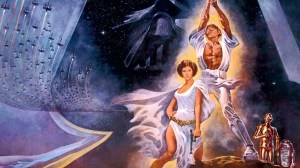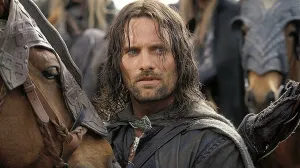
The very nature of superhero events and anniversary celebrations forms a trap for creators. There’s an easy temptation to give into nostalgia, recreating the greatest hits or referencing the familiar too often. Marvel Knights 20th #1 veers away from these potential pitfalls by focusing on the story at hand and allowing that to celebrate the characters and comics which provide the “20th” in its title. The first issue builds upon a familiarity with Marvel Comics, but is driven by a fantastical mystery that provides plenty of forward momentum even as it constructs upon the past. It’s a smart approach, and one that makes this a very engaging first issue.
Videos by ComicBook.com
Before delving into the framing of this event, it’s important to note how well it is told. Artist Travel Foreman provides a “meat and potatoes” approach to superhero stories with pages that clearly direct the action and emphasize each moment to just the right degree. A fist fight is delivered in a handful of panels with each new punch or kick clearly following from the prior one and building to a crescendo. There is nothing stylistically fancy in this approach, but it is far more compelling than much of what Marvel prints today. Economy is the central focus in both action sequences and long conversations that expose the plot. Layout decisions are always made for clarity, making this both an enjoyable read and one which efficiently delivers a complex premise. This efficacy makes each of the five splash pages within the comic stand out as well. These splashes are the only place in which Foreman’s storytelling stumbles either. While most deliver impact proportionate to the story being told, two of these pages seem bare compared to their contents and hinder the skillful pacing of the issue, even if it is ever so slightly.

This storytelling approach is essential to Marvel Knight 20th #1, because it frames the anniversary as a mystery box, one which readers are challenged to solve alongside Matt Murdock. The issue opens on him at the grave of Karen Page with no memory of who he is and only a few emotional hints at what his story might be. It is not a lonely position for Matt either as the issue slowly reveals more and more Marvel stalwarts all facing a similar predicament. The value of a mystery may be determined only in its solution, but it is incredibly well staged in this issue. Each new sequence provides more insight and the problem in clear for readers to puzzle by the final cliffhanger. Even as the issue focuses on setting up the big question, it still delivers a satisfying individual reading experience.
There is also an element of commentary about the Marvel Knights line that emerges from this tantalizing mystery. The choice on which elements of each recognizable character to emphasize or what few referential elements of artwork to display all prioritize what makes this brand matter. While readers might disagree with Cates and Foreman’s assessment, there is a vision of what Marvel Knights is being detailed here, and it is far more expansive than the typical “gritty, street level” description normally applied. Humanity is at the forefront of each hero or villain shown, even those with enough power to threaten an entire city.

As the Marvel Knights line prepares to relaunch with a new generation of creators at its helm, Marvel Knights 20th #1 provides an excellent starting point. It cherishes the many characters who define this world of superheroes, but never stares too hard into the past. Matt Murdock and others search for their identities alongside the creators bringing this issue to life, and they each find some sense of footing by the end of the issue. This is a comic about the essential elements of legendary characters and the excitement of exploring them in a new setting. If the rest of Marvel Knights 20th and the new Marvel Knights series to come can maintain this momentum, then it has every bit as much potential as its inspiration.
Published by Marvel Comics
On November 7, 2018
Written by Donny Cates
Art by Travel Foreman
Inks by Derek Fridolfs
Colors by Matt Milla
Letters by Cory Petit








